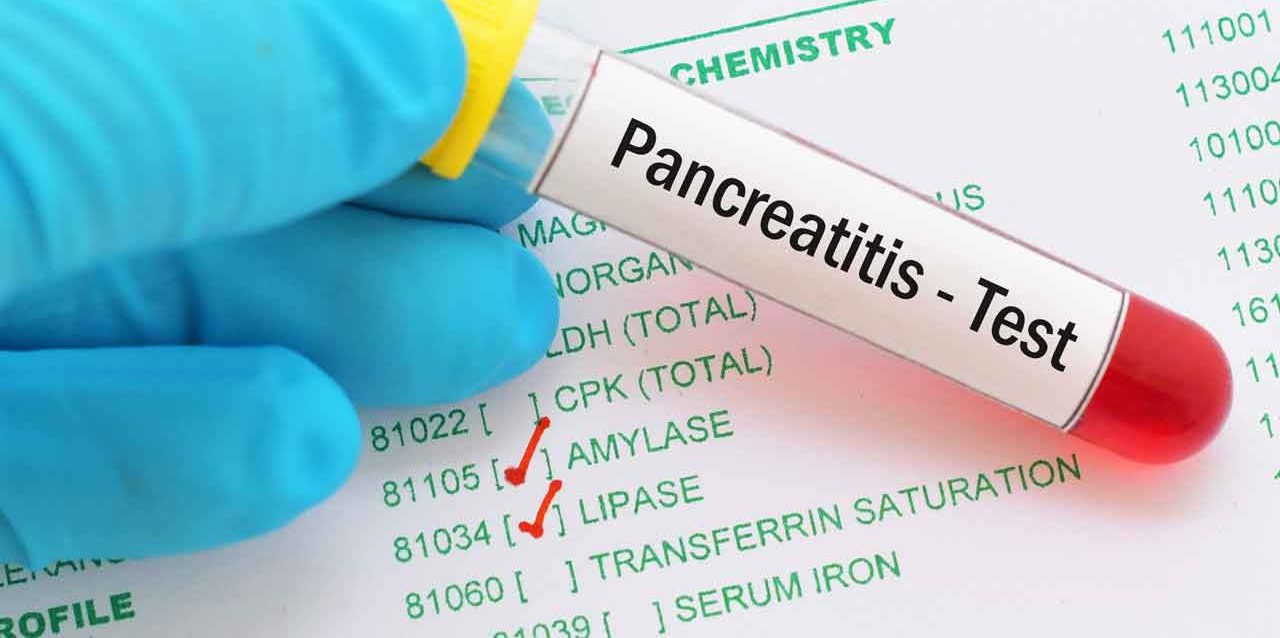Pancreatitis Symptoms

Pancreatitis, inflammation of the pancreas, can cause severe pain and be life-threatening. If you have pancreatitis symptoms, seek immediate medical care.
The pancreas is a gland in your upper abdomen, located behind your stomach and close to the duodenum (the first part of your small intestine). Although only about six inches long, your pancreas is crucial for health. It produces insulin (which controls how your body uses and stores glucose), and it makes enzymes to digest food in your intestine, allowing nutrients to be absorbed.
When your pancreas is functioning normally, you probably never think about this glandular organ. But if you develop inflammation of the pancreas, a condition known as pancreatitis, the symptoms can be uncomfortable — often including severe pain — and sometimes life-threatening.
YOU MIGHT ALSO LIKE: Symptoms of Exocrine Pancreatic Insufficiency
Are you at risk for chronic or acute pancreatitis?
Pancreatitis can be chronic, occurring over many years, or it can be sudden and acute. The most common causes of both types are gallstones, excessive alcohol consumption, genetic disorders, and injury from some drugs. Less common causes include infections (especially with viruses or parasites), abdominal injuries, and pancreatic cancer, according to the National Institute of Diabetes and Digestive and Kidney Diseases (NIDDK).
Men are more likely to develop pancreatitis than women, and African-Americans have a higher risk than other races. The likelihood of developing pancreatitis also goes up if you have a family history of pancreatitis or gallstones.
For reasons that aren’t clear, acute pancreatitis is becoming more common, the NIDDK points out. Although rare in children, an increasing number of youngsters, as well as adults, are developing the condition. In all, there are about 275,000 hospital stays annually in the U.S. due to acute pancreatitis symptoms and about 86,000 hospital admissions for chronic pancreatitis.
Both chronic and acute pancreatitis are serious health concerns and can lead to complications that are sometimes life-threatening, the NIDDK notes. What’s more, chronic pancreatitis can cause diabetes, and acute pancreatitis raises the risk of pancreatic cancer.
That’s why it’s important to talk to your doctor or seek immediate medical care if you have possible symptoms of pancreatitis.
It’s important to recognize pancreatitis symptoms
Acute pancreatitis is an isolated episode of abdominal pain and other symptoms, and it’s marked by elevations in blood enzyme levels associated with the condition. Chronic pancreatitis is an ongoing, usually painful disease with inflammation-caused irreversible scarring and other damage to the gland. Multiple episodes of acute pancreatitis can lead to the chronic form.
Although less common than the acute form of the disease, chronic pancreatitis tends to worsen over time and lead to permanent damage, the National Pancreas Foundation warns. Eventually, chronic pancreatitis can impair your body’s ability to make hormones and to digest food.
Both acute pancreatitis and chronic pancreatitis usually cause pain in your upper abdomen. The pain can be mild or severe, typically worsens after eating, and can spread to the back. It may last for days or even become constant. Other pancreatitis symptoms can include vomiting and weight loss, nausea, diarrhea, and foul-smelling, greasy stools.
Some people with chronic pancreatitis may not have symptoms until they develop signs of complications such as non-stop abdominal pain, malnutrition from food not being digested properly, and even bone fractures from calcium malabsorption.
Complications of acute pancreatitis can include infections, internal bleeding, and dehydration.
Get medical care for acute pancreatitis symptoms
People experiencing severe acute pancreatitis symptoms usually appear and feel seriously ill — and their illness may be life-threatening. In fact, the mortality rate for acute pancreatitis is around 10 percent, the National Pancreas Foundation points out.
The NDDK advises seeking immediate medical help if you or someone you know has these severe pancreatitis symptoms:
- Pain or tenderness in the abdomen that is severe or becomes worse
- Nausea and vomiting
- Chills and fever
- Unusually fast heartbeat
- Shortness of breath
- Jaundice (yellowish color of the skin or whites of the eyes)
Diagnosing and treating pancreatitis symptoms
Blood tests (to check for signs of inflammation, infection, and digestive enzyme levels), stool tests (to look for fat malabsorption), and imaging tests, such as CT scans and MRIs, are used to diagnose pancreatitis.
Treatment for both chronic and acute pancreatitis symptoms may include a hospital stay to treat dehydration and severe pain. Nutrition may be administered through an IV or feeding tube.
The good news is mild pancreatitis may improve after a few days of rest and treatment. More severe cases may require surgery if gallstones are found to be causing the pancreatitis. Your doctor may also drain fluid from your abdomen that can build-up around the pancreas (a pseudocyst), causing pain. Sometimes, damaged tissue is removed from the pancreas, too.
Ongoing, chronic pancreatitis is usually treated with enzyme pills to help with digestion. Vitamin supplements (including B-12 shots) are often prescribed, too, if there are signs nutrients are not being absorbed well.
Bottom line? Take control to improve or prevent pancreatitis symptoms
If you have pancreatitis, one of the most important things you can do for your health is to stop drinking alcohol. You’ll lower the risk of acute and chronic pancreatitis. The same goes for smoking. If you are a smoker with pancreatitis, you could increase the odds you’ll develop pancreatic cancer, the NIDDK notes.
While there’s no guarantee a healthy lifestyle will prevent pancreatitis, maintaining a healthy weight — or dropping excess pounds if needed — can help your pancreas stay healthier. In addition, you’ll reduce your risk for gallstones, a top cause of pancreatitis, and lower the risk for type 2 diabetes, which also raises the risk for pancreatitis symptoms.
YOU MIGHT ALSO LIKE: Losing Weight Can Reverse Type 2 Diabetes
Updated:
April 01, 2020
Reviewed By:
Janet O’Dell, RN